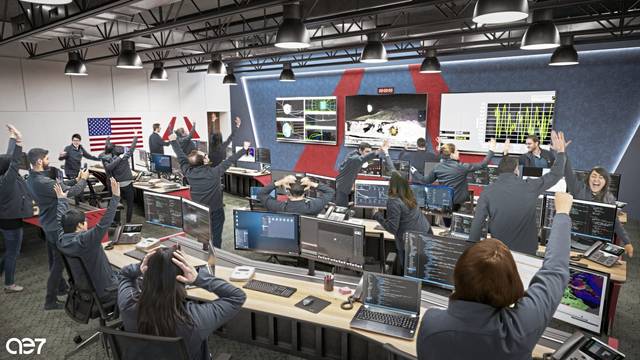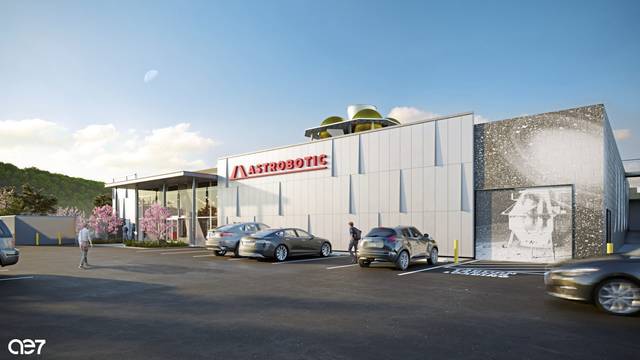A 47,000-square-foot building being renovated on Pittsburgh’s North Side is expected to be a key player in America’s next space odyssey.
Astrobotic Technology Inc. announced Thursday it will locate its headquarters at 1016 North Lincoln Ave., near the Manchester neighborhood, thanks in part to $285,000 in state job-creation tax credits.
The company is committed to investing more than $6.5 million in the project and will create 95 jobs.
“We’re proud that Pennsylvania is supporting us and excited to be growing the company in Pittsburgh,” said Astrobotic CEO John Thornton.
The company is part of the U.S. return to the moon, something Astrobotic has been prepping for since its founding in 2007 on the Carnegie Mellon University campus.
Astrobotic plans to build and test its Peregrine lunar lander on the North Side. A mission control room will govern any mission to the moon and will also be located in the building, Thornton said.
The company had been operating in the Strip District and is in temporary space Downtown until the North Side building is ready.
“We need a facility that we can build the lander in. That’s the key part,” Thornton said.
The goal is to have that area ready to open by May 2020 and then work to finish the other areas of the building throughout next year.
Astrobotic hopes to launch a mission to the moon in 2021.
The company started the year with 20 employees and has grown to a workforce of 65, and the company is looking to hire more software, electrical and mechanical engineers as it moves forward.
The state tax credits are predicated on Astrobotic adding 90 jobs.
“With products developed in Pittsburgh launching to the moon, companies like Astrobotic show the world the innovative work being done right here in the commonwealth,” Gov. Tom Wolf said in a statement. “By investing in that innovation, we’re investing in the future of technology, the future of jobs and the future of industry.”
The Peregrine is being marketed as a lunar lander that can deliver payloads to the moon for private companies, governments and institutions that can afford the $1.2 million per kilogram price tag.
In May, NASA selected Astrobotic for a $79.5 million contract to deliver lunar payloads in 2020.
Twenty-eight other payloads are booked for the first lunar mission, although a date for that mission hasn’t been set.











